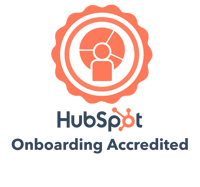How to Run a Successful Ad Campaign for Digital Marketing

Great online advertising drives leads and allows you to reach all your goals. Ads are a good tool for building short term traffic, getting the word out on events, sales and promos...but they also come with a price tag.
How to run a successful ad campaign and balance your spending budget with ROI is a challenging task.
Use these tips to run a successful online ad campaign for your digital marketing.
Understanding Online Ads and PPC
Almost every form of online advertising is going to be pay per click. PPC advertising, or pay per click, is an online marketing tool based around ads. Two of the most popular platforms for PPC ads are Facebook and Google.
→Read Now: What’s the difference between SEO and PPC?
Facebook is a social media platform that uses user interests to show ads. Instead of typing in a specific keyword, Facebook analyzes a user’s demographic information, their likes and their online activity to decide the relevant ads to show them.
An advertiser selects the type of person they want to show their ads to (for example, women in their 20s who live near a metro area and like to shop online) and Facebook matches the ad to the user.
Google AdWords is a paid search platform, which means it relies on user intent to show ads. When a user types something into Google, ads appears above and below the search results that are related to that keyword.
An advertiser selects the keywords they want to run ads for. This is where many people confuse PPC and SEO, since they both involve search engines and keywords.
Components of a Strong PPC Campaign
The advantage of pay per click advertising is that it allows for minute targeting and precision for your budget. On both Google and Facebook, you can customize your ad to include elements tailored to your customers and region.
In order to get the best value for your budget, every good PPC campaign should have these components:
1. A defined persona
Rely on your ideal customer (or buyer personas) to drive your PPC campaigns. You can't possibly advertise to everyone in the world and get a good return on investment. Instead, think about the best way to reach your ideal audience.
Where do they spend their time online?
What kind of content interests them?
What offer would be most relevant to them?
Answering these questions will help you target your online advertising.
2. Set goals
Determine what you want to accomplish. Identify the goal with a quantifiable and how you will measure both success and areas for improvement.
For example, if you are running a new Google Ad to increase sales on a specific item, setting a conversion goal may be how you quantify success.
If you are unsure about goal creation, check out our guide to smart goals.
3. Clear channels and content
Where will you advertise online? Google and Facebook are the most popular platforms, but is there another that is more relevant to your audience? You need to choose the channels before you can build.
It's important to prioritize platforms that will give you the most relevant audience for your efforts.
→Read Now: 5 Places to Advertise Online (That Aren’t Facebook, Google or Amazon)
Content is also key. Where are you going to send people when they click on your ad? Most ads using a landing page for this purpose, so they can send users back to their website with targeted content.
However, if you're advertising a specific product you may want to send users straight to that product's page. You may also want to send them somewhere else on your site, like a request a quote page.
Lastly, there's the content in the ads themselves - the text and imagery. Include a variety of content types in each ad so your messaging remains fresh and engaging.
4. A sensible budget
You want your spend to net you a good return, without overspending. Start small with attainable and measurable budget and adjust on a schedule. It is important to analyze thoughtfully and make cogent determinations before making any major budgetary changes.
The best way to determine what budget you should start with is to use the tools each platform provides. For example, if you're going to advertise on Google then use their PPC advertising calculator to estimate a budget.
Almost every place you can advertise online will provide a budget calculator or estimate how many clicks you should expect based on a certain budget.
5. Change based on data
Once you set up an ad campaign, it shouldn't remain static. You should be analyzing its performance every few weeks to see what's working. Success and failure are both important in learning what resonates with your audience.
All metrics are not equally important. Impressions are often reported, but actually as telling as behavioral measurables like clicks, click through rate, and conversion rate. When looking at whether or not your ads are working, look at the metric that's most relevant to your goal.
If your goal was to increase sales of a specific product, then you should look at conversion rate. If your goal was brand awareness, then you should look at impressions and shares.
Once you've looked at your data, manipulate variables in a measured process, individually so you can measure change effectively. Small changes can yield big results.
Final Thoughts
Running a successful ad campaign is about more than just budget and ROI. It's about knowing your audience, choosing the right channel and testing to see what works.
PPC can drive important traffic and build awareness with your customers. More than that, it provides very granular detail into user behavior, allowing you to gain insight into your customer.
This in turn helps you create stronger ads in the future.
* * *
Free Download: The Beginner's Guide to Digital Marketing
If you want to grow in 2021, now's the time to iron out your marketing plan. To be prepared for budgeting this season, there should really be a digital strategy in place to aid your company in reaching their goals. In this guide, we’re going to walk you through everything you need to create a solid marketing plan.
In this download you'll learn how to:
- Set achievable goals
- Find your ideal customer and create buyer personas
- Align your branding and marketing
- Analyze your competitors online
- Measure digital marketing success
- Execute effective digital marketing tactics
BizzyWeb is a Minneapolis-based digital marketing and web design agency that helps companies get the high-quality leads they need to grow and thrive. Our tactics include inbound marketing, SEO, advertising, web design, content creation and sales automation. We are an accredited HubSpot Platinum Partner and we offer full-service HubSpot onboarding, enablement and strategy for new and current users.





